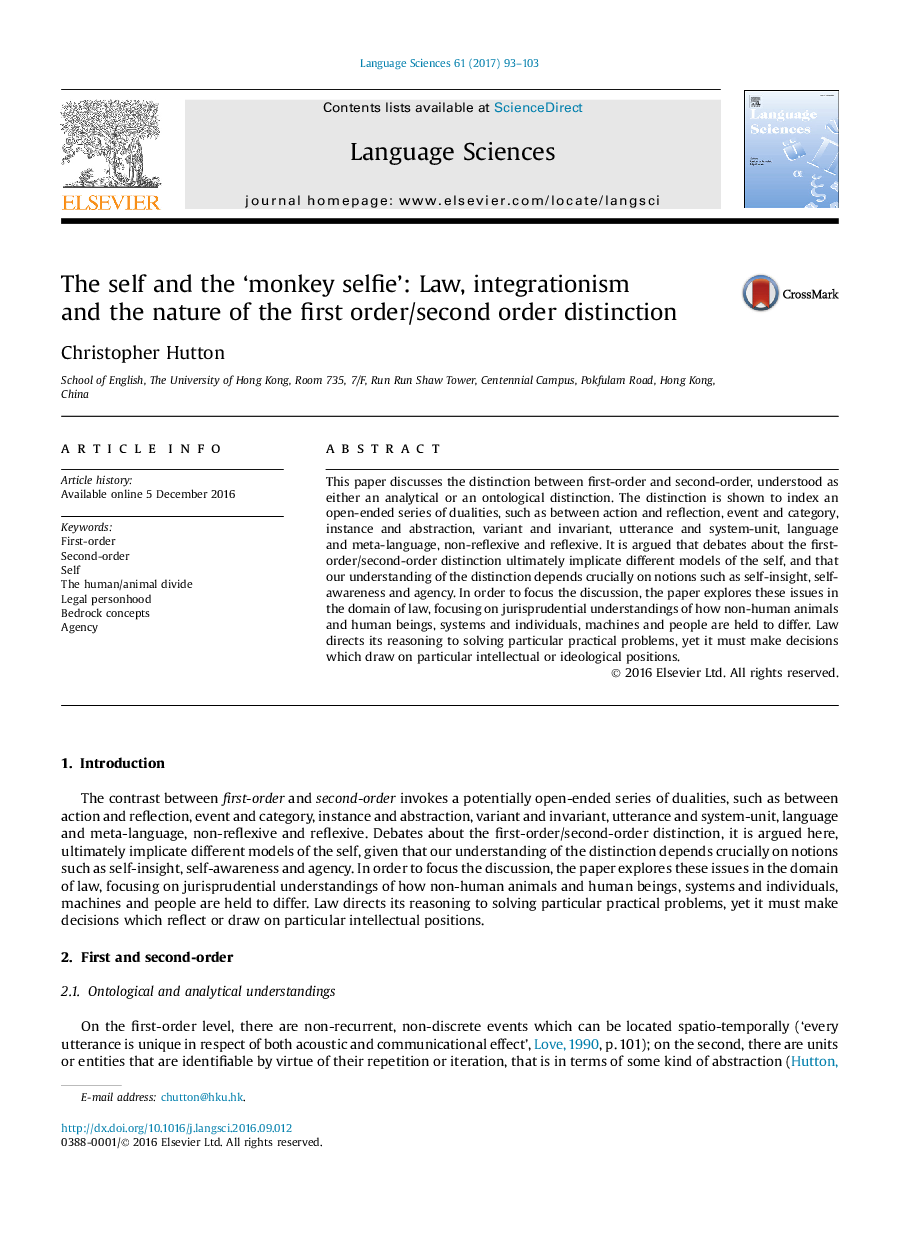| Article ID | Journal | Published Year | Pages | File Type |
|---|---|---|---|---|
| 5124526 | Language Sciences | 2017 | 11 Pages |
â¢The first-order/second-order distinction reflects distinct views of the self.â¢Integrationism is distinctive in rejecting second-order notions of system and order.â¢The notion of the autonomous self in integrationism is open to challenge.â¢Recent legal thinking related to animal personhood, and cyborgization is analyzed.â¢Complex notions of selfhood can be illuminated through an analysis of legal debates.
This paper discusses the distinction between first-order and second-order, understood as either an analytical or an ontological distinction. The distinction is shown to index an open-ended series of dualities, such as between action and reflection, event and category, instance and abstraction, variant and invariant, utterance and system-unit, language and meta-language, non-reflexive and reflexive. It is argued that debates about the first-order/second-order distinction ultimately implicate different models of the self, and that our understanding of the distinction depends crucially on notions such as self-insight, self-awareness and agency. In order to focus the discussion, the paper explores these issues in the domain of law, focusing on jurisprudential understandings of how non-human animals and human beings, systems and individuals, machines and people are held to differ. Law directs its reasoning to solving particular practical problems, yet it must make decisions which draw on particular intellectual or ideological positions.
